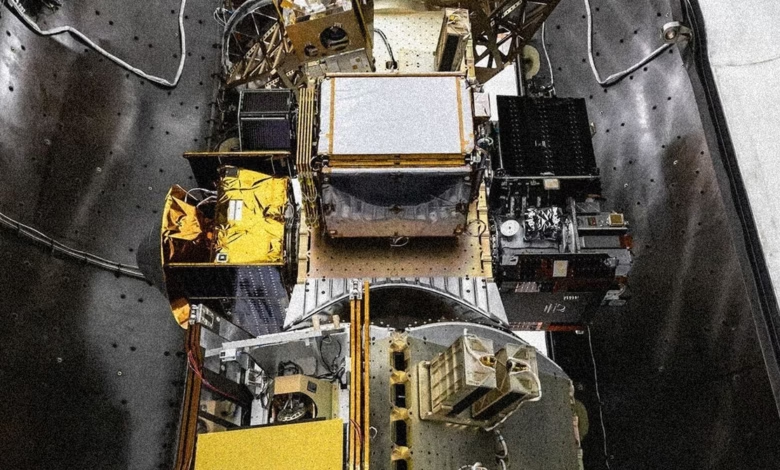“Google Aims to Improve Wildfire Detection From Space”(Note: 50 characters)

▼ Summary
– Google, Earth Fire Alliance, and Muon Space partnered to launch Fire Sat, a satellite constellation designed to detect wildfires in real time using AI.
– The first of over 50 planned satellites launched in March 2025, with the full constellation expected to be operational by 2029.
– The satellites will capture images of fire-prone areas every 15 minutes, enabling early detection and tracking of fires.
– Canada’s WildfireSat program, launching in 2029, is another fire-tracking satellite initiative, but Google aims to deploy its system faster with AI-enhanced analysis.
– Current satellite thermal imaging struggles with low-resolution images, making early fire detection difficult due to similar heat signatures from non-fire sources.
Google is taking wildfire detection to new heights with an ambitious satellite initiative designed to catch blazes in their earliest stages. The tech giant has partnered with the Earth Fire Alliance and Muon Space to deploy a constellation of over 50 satellites, collectively known as Fire Sat, which will orbit Earth to monitor fire-prone regions in near real time. The first of these specialized satellites launched in March 2025, with the full network expected to be operational by 2029.
Once complete, the system will capture images of high-risk areas every 15 minutes, providing unprecedented speed and accuracy in identifying emerging fires. This data will be processed using advanced AI algorithms to distinguish between actual wildfires and false alarms, such as heat reflections from buildings or water. By transmitting alerts to ground teams faster than ever, the initiative aims to revolutionize how fires are detected and managed globally.
Brian Collins, executive director of the Earth Fire Alliance, emphasizes the urgency of the mission: “Our goal is to fundamentally change how the world responds to wildfires, ensuring early detection and rapid intervention.” While other programs, like Canada’s WildfireSat, are also working on satellite-based fire monitoring, Google’s project stands out for its AI-driven approach and aggressive timeline.
Current satellite systems, such as those operated by NOAA, already contribute wildfire data to platforms like Google Maps. However, their thermal imaging capabilities have limitations. Christopher Van Arsdale, a Google researcher, explains that existing sensors often produce grainy, low-resolution images, making it difficult to spot small or nascent fires. “Without high-fidelity imagery, everything can look like a potential fire,” he notes. Fire Sat’s upgraded technology aims to overcome these challenges, delivering clearer, more precise heat signatures to improve detection accuracy.
With wildfires growing in frequency and intensity due to climate change, the need for faster, smarter monitoring has never been greater. Google’s venture into space-based fire tracking could mark a turning point in global disaster response, offering a critical tool to mitigate destruction before it spirals out of control.
(Source: Wired)

